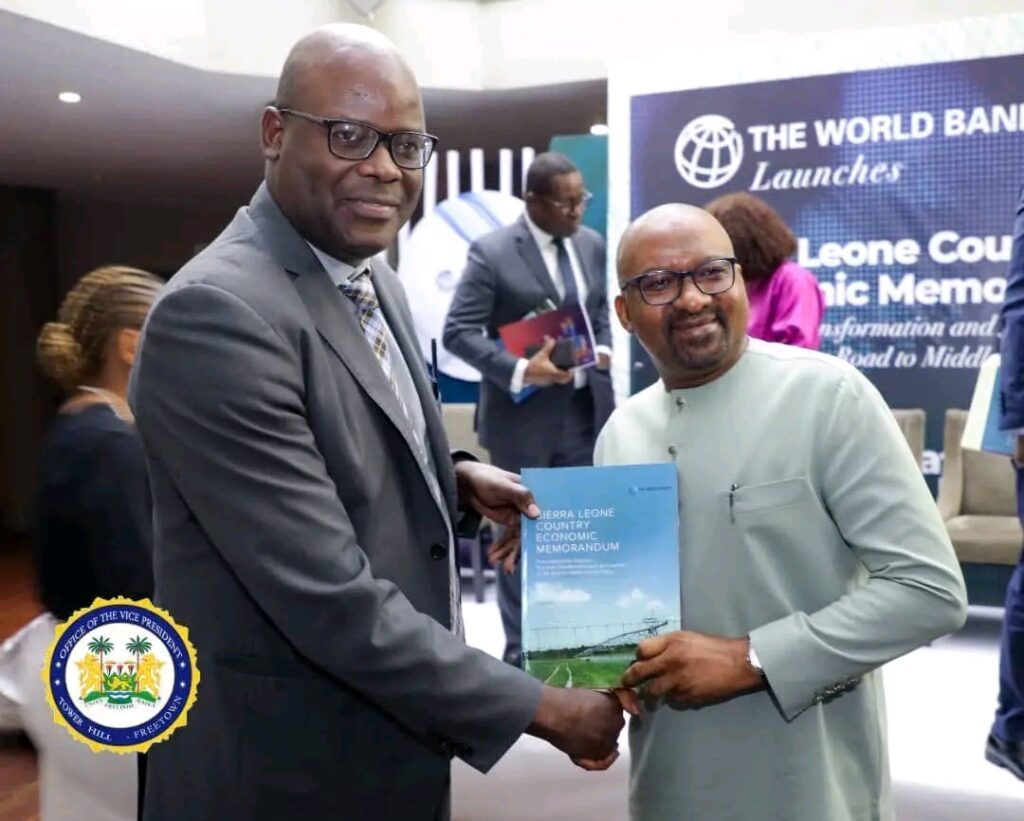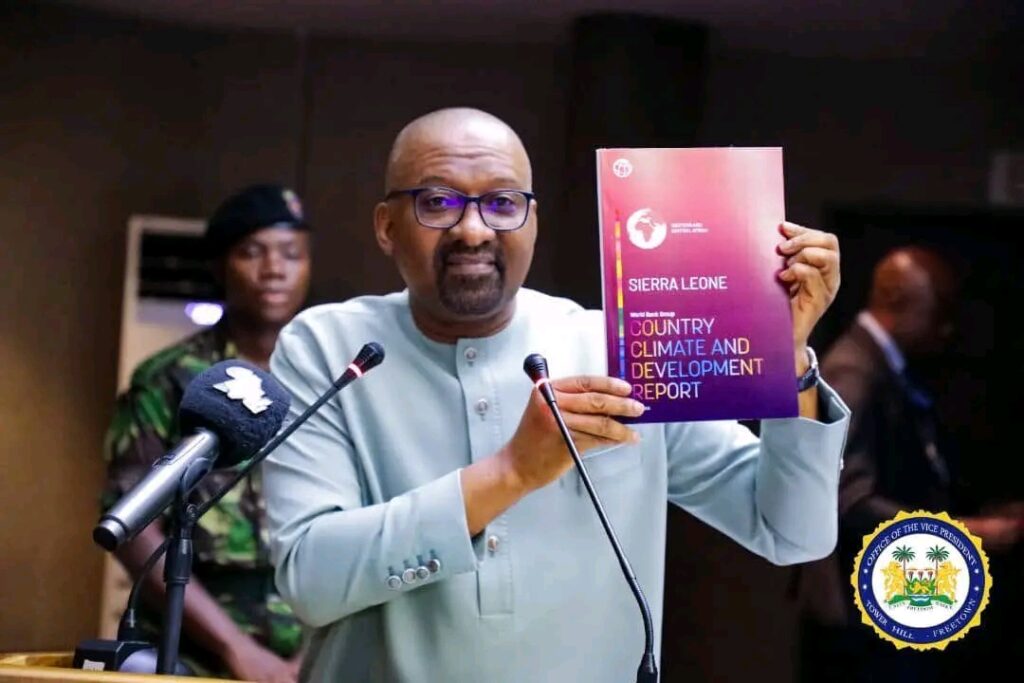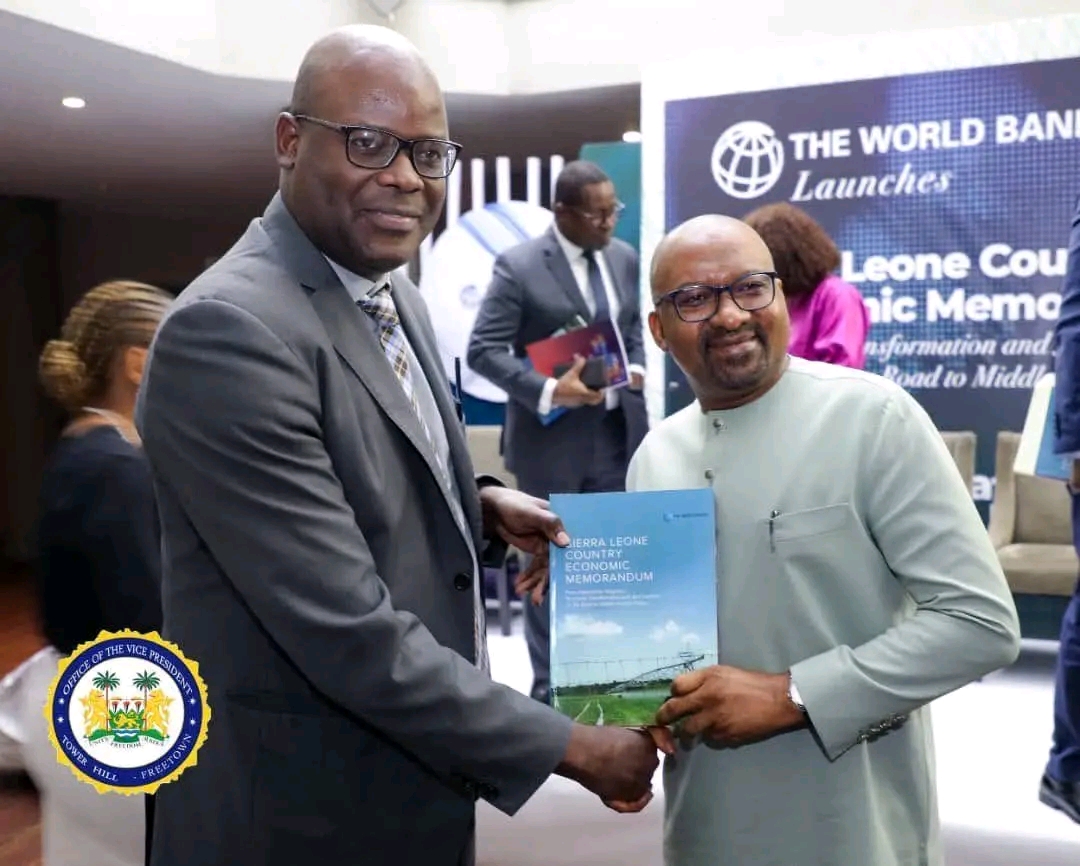
WORLD BANK PREDICTS POVERTY TSUNAMI IN S/L
By Gibrilla Kamara
A sobering new report from the World Bank has projected that approximately 600,000 Sierra Leoneans are at imminent risk of falling into poverty by the end of 2025. The report, part of the Bank’s latest Country Climate and Development Report (CCDR) for Sierra Leone, paints a grim picture of a nation caught at the crossroads of worsening climate shocks and persistent economic fragility.
The World Bank attributes this looming crisis to a dangerous convergence of climate-related disasters—rising temperatures, erratic rainfall, and increased flooding—and long-standing development challenges. These forces, the report warns, could derail years of progress and push hundreds of thousands into extreme deprivation unless urgent action is taken.

“Sierra Leone faces a pivotal moment in its development journey,” the report notes. “Without bold and adaptive strategies, the compounding risks of climate change and economic shocks will deepen poverty and widen inequality.”
A Country of Rich Potential, Stalled by Crisis
Sierra Leone, a country endowed with vast natural resources and rich cultural heritage, remains classified among the world’s least developed countries. Despite numerous development efforts and commitments to global frameworks such as the United Nations’ Sustainable Development Goals—particularly Goal 13: Climate Action—the nation continues to struggle in translating policy into broad-based economic growth.
Since the end of its brutal civil war in 2002, Sierra Leone has made significant strides in restoring peace and building institutions. However, sustainable economic transformation has proven elusive. Once largely agrarian, the country’s economy has seen a sharp decline in agricultural productivity, undermined by both climate disruption and underinvestment. As a result, sectors like mining and services have filled the gap—yet not without exposing the economy to volatility and limited job creation.
Agriculture Under Siege
The World Bank identifies agriculture—the main source of livelihood for the majority of Sierra Leoneans—as one of the sectors most severely affected by climate change. Among the key issues:
Changing Rainfall Patterns and Soil Erosion: Unpredictable weather cycles and degraded soils have reduced crop yields, threatening food security for rural communities.
Inadequate Fiscal Space: Government capacity to invest in climate adaptation and agricultural resilience remains constrained by a tight national budget.
Limited Access to Market Financing: Smallholder farmers lack the financial tools and infrastructure to scale their businesses or access larger markets.
Insufficient Climate Financing: As a low-income country, Sierra Leone struggles to secure international climate funds necessary for long-term investment in resilience and green infrastructure.
A Call for Urgent Action
The report concludes with a call for urgent, coordinated interventions—both domestic and international. It urges the government of Sierra Leone, development partners, private sector actors, and civil society to work collaboratively in strengthening resilience across all sectors.
This includes:
Expanding climate-smart agriculture programs,
Investing in early-warning systems and climate-resilient infrastructure,
Creating more inclusive financial systems to support farmers and small businesses,
And aligning national development planning with global climate priorities.
The Road Ahead
As the effects of climate change become more visible and intense, Sierra Leone’s development future hangs in the balance. The World Bank’s findings are more than just data—they are a clarion call for action. Failing to respond decisively risks trapping an entire generation in a vicious cycle of poverty, driven not only by environmental degradation but by missed opportunities for bold and inclusive development.
Unless Sierra Leone acts with urgency, and the international community steps in with adequate support, the cost of inaction could be catastrophic—for the people, for the economy, and for the planet.
